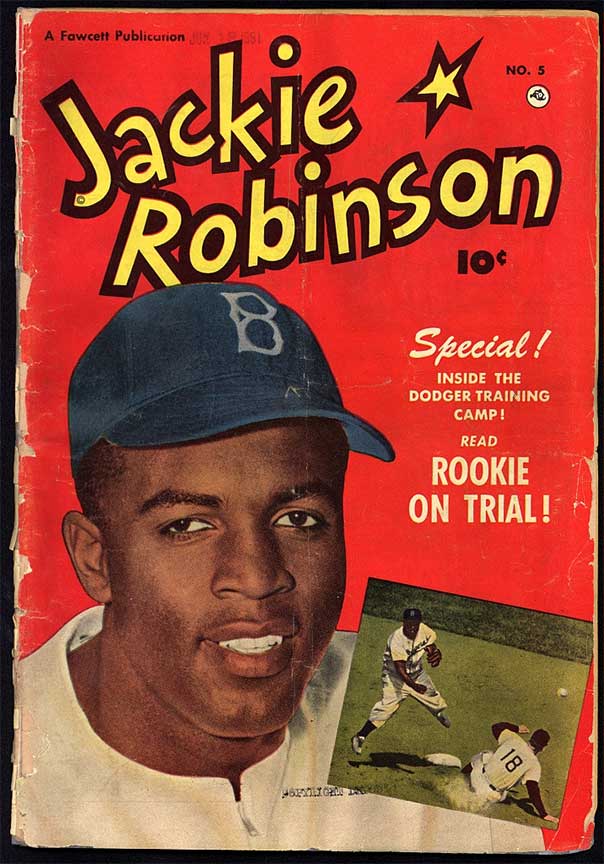1947 First Black Major League Baseball Player

|
On April 10, 1947, Jackie Robinson broke the color barrier in Major League Baseball by becoming the first Black player to join a major league team. Robinson began his career with the Brooklyn Dodgers, marking a significant milestone in both sports history and the broader civil rights movement in the United States.
Born on January 31, 1919, in Cairo, Georgia, Robinson grew up in a time when segregation and racial discrimination were pervasive in American society. Despite these barriers, Robinson excelled in athletics from a young age. He attended UCLA, where he became the first athlete to earn varsity letters in four sports: baseball, basketball, football, and track. His remarkable talent and versatility in sports set the stage for his future career in baseball.
After college, Robinson briefly served in the U.S. Army during World War II, where he faced racial discrimination that led to a court-martial after he refused to move to the back of a segregated bus. He was acquitted of all charges and honorably discharged. Following his military service, Robinson played in the Negro Leagues, showcasing his exceptional skills with the Kansas City Monarchs.
Branch Rickey, the president and general manager of the Brooklyn Dodgers, recognized Robinson’s talent and saw an opportunity to challenge the racial segregation in Major League Baseball. Rickey was determined to integrate the sport and believed that Robinson possessed not only the athletic prowess but also the strength of character to withstand the intense scrutiny and hostility that would come with breaking the color barrier.
Rickey signed Robinson to a contract with the Dodgers in 1945, assigning him to the Montreal Royals, the Dodgers’ minor league affiliate, for the 1946 season. Robinson excelled with the Royals, leading the International League in batting average and earning the league’s Most Valuable Player award. His performance on the field demonstrated that he was ready for the major leagues.
On April 10, 1947, Robinson was called up to the Brooklyn Dodgers, making his debut at Ebbets Field. His first game was met with a mixture of excitement, curiosity, and resistance. Robinson faced tremendous pressure as he navigated the overt racism from fans, opposing players, and even some of his teammates. Despite the hostility, Robinson maintained his composure and focused on his game, proving his critics wrong with his outstanding performance.
Throughout his rookie season, Robinson’s talent and resilience shone brightly. He played first base and quickly became one of the most exciting players in the league. He finished the season with a .297 batting average, 12 home runs, and 29 stolen bases, earning him the Rookie of the Year award. Robinson’s success on the field helped pave the way for other Black players to enter Major League Baseball, leading to the gradual integration of the sport.
Robinson’s impact extended beyond baseball. He became a symbol of hope and progress for African Americans and a catalyst for the civil rights movement. His courage and determination inspired many to challenge segregation and fight for equality in all areas of society. Robinson used his platform to advocate for civil rights, speaking out against racial injustice and working with organizations such as the NAACP.
Robinson’s legacy is celebrated annually on April 15, known as Jackie Robinson Day, when every player in Major League Baseball wears his iconic number 42 in tribute to his contributions to the game and society. In 1997, MLB retired his number across all teams, ensuring that no player would ever wear 42 again, cementing his place as a trailblazer in sports history.
 >
>